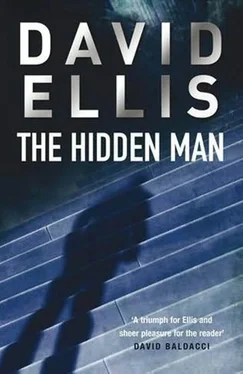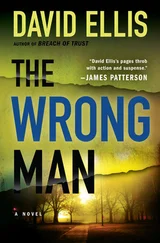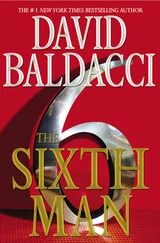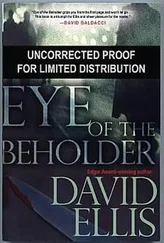Besides, I didn’t have much time for the racial thing. I dislike everyone equally.
The judge on our case was the honorable Kathleen Poker. She’d assumed the bench after a career as a prosecutor-find me a criminal court judge who hadn’t-and was generally considered tough but fair. I’d never had a case in front of her but, based on her reputation, she was a relatively good draw.
I sat in the courtroom among the myriad of criminal defense attorneys waiting for the call. It was not, by and large, an impressive bunch. These are not the lawyers you see on television, the thousand-dollar suits and trendy haircuts, the passionate crusaders. These are guys and gals who work for a living. They take their money up front. If they’re good, they only lose about ninety percent of the time. They don’t like their clients and they have trained themselves not to care too much, else they will never again enjoy a decent night’s sleep. And when the money runs out, so do they, or they’d go broke. They do not have the benefit of an armada of young lawyers performing research and investigation. They have the cards stacked overwhelmingly against them and they know it. They know how to cross-examine a witness but have far less experience in directing their own clients on the stand, because most of their clients take Five. They drink their Maalox from the bottle and tell themselves, every day, that they are playing a necessary role in the criminal justice system.
Other than that, it’s a great job.
We got called near the beginning, because our motion was routine. Judge Poker, looking rather austere with gray-brushed hair, peered over her glasses down at me. “Mr. Kolarich, you are aware of the October 29 trial date? Less than a month away?”
“I am, Judge. We’ll be ready.”
She held her look on me a long moment, then looked over at the prosecutor, Lester Mapp.
“No objection,” Mapp said. He was probably thrilled that I’d be playing catch-up. Presumably, he’d expected me to ask for an additional six months.
She smirked at the prosecutor’s feigned graciousness, delivered a little too eagerly. I decided then that I liked her, and I could make her like me, if I were so inclined. “Granted,” she said, and two minutes later, Mapp and I were leaving the courtroom together.
It was my first chance to size him up. He dressed like a guy who’d spent some time in the high-end private sector, dressed in an Italian suit with a stylish yellow silk tie. All in all, he was an impressive-looking chap and, from the way he carried himself, I figured it might be the one thing that he and I would agree on.
He shook my hand and gave me a wide smile. “Great to see ya,” he said, though we’d never met previously. He was way too polished for my liking, but I suspected he would be formidable in court. “You got everything from the PD?”
“He’s sending it over today,” I said.
We stopped at the elevator.
“Ready for trial, are you?” His tone suggested that he didn’t buy it.
I figured I’d help him down the road he was already traveling. “Hey, I told Cutler, he’s crazy if he’s going to trial on this.”
He smiled again, predatory eyes appraising me. I wanted him to think that I was planning on pleading this out. I wanted him complacent, sure of himself. I wanted to be the farthest thing from a threat to him.
“Well, hey, you always got that black guy running from the building,” he said, palming my arm before heading into the elevator.
YOU DON’T INQUIRE, not when you’re a self-absorbed, seven-year-old kid. Something wakes you up, a familiar noise. Then you pinpoint the sound, a window frame sliding up. A moment of terror, filling your chest with dread, until you open your eyes and look at your own window on the second floor and realize it’s not yours. You look through your own open window, through the screen, and you listen, but you don’t inquire. You hear some more noises, rustling. Maybe you could identify that sound, too, but you don’t try; you just hear things happening. Later you will realize it, of course, the sound of someone crawling through a window. The sounds subside, you’re lost in your own world, suffused with drowsiness, and your face eases back into the cool pillow. Maybe you drift off a moment until you hear it again, those same rustling sounds, but then there is urgency to the movements, and that sound-the sound of footsteps running on grass-you have no trouble identifying.
But you’re a kid. You don’t place it in context. It feels wrong, yes, but you don’t confront it. Finally, you get out of bed, tentatively, and move to your window. It’s probably no accident that you waited until the running footsteps have faded before you look. You look down into the window next door, into the bedroom of Audrey Cutler, Sammy’s sister, where the window is open, the curtain is dancing in the light wind.
You return to bed. It feels like you have drifted off to sleep. You lose track of time again, because it doesn’t register at first; it takes you a moment before your head jerks up again, at the sound of Sammy’s mother wailing out, a horrifying shriek.
Later, you will say you didn’t hear anything, that you were asleep. No one expects anything different of you. It’s not like you could help them out, anyway. You didn’t see the man who abducted Audrey. Still, you always wonder: Could you have done something?
I felt my heartbeat kick up a gear as I saw the sign for Leland Park. The old neighborhood looked just that-old. I had to attribute that, in part, to the mere fact of my own maturity, returning to your roots, but Leland Park looked a lot worse for the wear. I had expected change, something different, and found surprise in the absence of change. The houses were the same, aged a couple of decades, well-worn bungalows and the occasional board-up. This wasn’t one of the neighborhoods in the city that was attracting new construction; this was a neighborhood people were leaving.
I turned onto my old street, braking for a young black kid who chased a rubber football into the street. Now that was different. My neighborhood had been all-white; the folks had an unwritten rule about it: You didn’t sell your house to blacks. I’d heard of a lawsuit filed about ten years ago, a claim of racial steering brought against the real estate agents and some of the residents, which apparently had succeeded.
I pulled up to the fourth house from the corner of Graynor and 47th. The house I grew up in was a two-story house with siding, a small porch of rock and a gravel driveway. All of that was still true, but the siding was torn on each side and now there was a porch swing. The half-acre lot looked smaller than I’d remembered it.
I didn’t feel anything. I saw my mother on the front porch, calling me in for dinner; my father drinking a Coors while he fussed over his Chevy on the driveway; my brother Pete running around in circles on our small front yard; Sammy coming to my front door for the walk to school. But it didn’t register in any way. Nothing. My emotions had run daily marathons for months and needed a rest.
Next door was Sammy’s old house. A German shepherd was barking at me from a chain-link fence in the backyard. I looked at the window on the side of the house and pictured Griffin Perlini carrying little Audrey out of the house. Our neighbor down the street, Mrs. Thomas, had seen it happen from her bedroom window, watched them run down Graynor, turning right down 47th. Other than Perlini, Mrs. Thomas was the last to see Audrey Cutler. She hadn’t known what she was watching, of course. She was a middle-aged widow looking down the street, the distance of a football field, at a figure running awkwardly, hunched over, without pumping his arms. She hadn’t realized that the reason he couldn’t use his arms was that he was carrying a two-year-old girl.
Читать дальше












